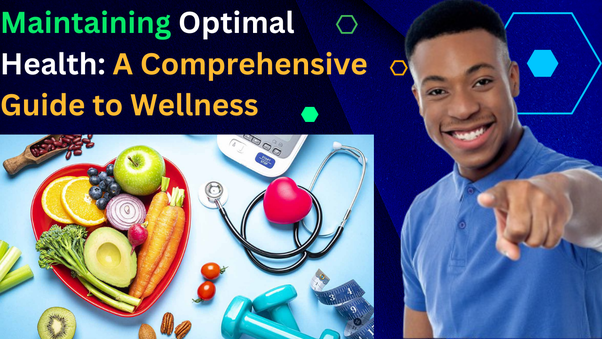Nutrition plays a fundamental role in maintaining optimal health and preventing chronic diseases. The foods we eat provide the essential nutrients our bodies need to function correctly. This article explores the importance of nutrition, the benefits of a balanced diet, common dietary challenges, and practical tips for improving nutritional habits.
The Importance of Nutrition
Proper nutrition is crucial for growth, development, and overall well-being. It affects every aspect of our lives, from energy levels and cognitive function to immune system performance and disease prevention. A balanced diet provides the necessary vitamins, minerals, and macronutrients (proteins, fats, and carbohydrates) to support bodily functions and maintain health.
Benefits of a Balanced Diet
A balanced diet has numerous benefits, including:
- Improved Energy Levels: Consuming a variety of nutrient-dense foods helps maintain stable energy levels throughout the day.
- Better Cognitive Function: Nutrients like omega-3 fatty acids, antioxidants, and vitamins are essential for brain health and cognitive function.
- Weight Management: A balanced diet helps regulate body weight by providing the right amount of calories and nutrients.
- Disease Prevention: Proper nutrition can reduce the risk of chronic diseases such as heart disease, diabetes, and certain cancers.
- Stronger Immune System: Essential nutrients support the immune system, helping the body fight off infections and illnesses.
Boost Confidence with Height Insoles
While nutrition is essential for health, confidence and self-esteem also play significant roles in overall well-being. Physical appearance can impact how one feels about themselves, and height is often a factor in self-confidence. Using best height insoles can provide an immediate boost in height, helping individuals feel more assured and confident.
Best height increase insoles are designed to be comfortable and supportive while subtly enhancing stature. They are available in various sizes and styles to meet different preferences and needs. By addressing height concerns, these insoles can contribute to improved self-esteem and overall mental well-being.
Common Dietary Challenges
Despite the known benefits of a balanced diet, many people face challenges in maintaining proper nutrition. Common dietary challenges include:
Processed Foods
Processed foods are often high in unhealthy fats, sugars, and sodium while being low in essential nutrients. These foods can contribute to weight gain, heart disease, and other health issues.
Lack of Access to Healthy Foods
In some areas, access to fresh, nutritious foods is limited. This can lead to reliance on processed and fast foods, which are typically less healthy.
Busy Lifestyles
Hectic schedules can make it difficult to prepare healthy meals, leading to a reliance on convenience foods that are often less nutritious.
Dietary Restrictions
Individuals with dietary restrictions, such as food allergies or intolerances, may find it challenging to maintain a balanced diet. This can result in nutrient deficiencies if not managed properly.
Practical Tips for Improving Nutritional Habits
Improving nutritional habits involves making conscious choices about the foods we consume. Here are some practical tips for maintaining a balanced diet:
Prioritize Whole Foods
Whole foods, such as fruits, vegetables, whole grains, lean proteins, and healthy fats, should form the basis of your diet. These foods are rich in essential nutrients and free from added sugars, unhealthy fats, and artificial additives.
Plan and Prepare Meals
Planning and preparing meals in advance can help ensure you have healthy options readily available. This can prevent last-minute decisions to opt for convenience foods.
Read Food Labels
Understanding food labels can help you make informed choices about the foods you consume. Look for foods with minimal ingredients and avoid those with added sugars, unhealthy fats, and excessive sodium.
Stay Hydrated
Drinking plenty of water is essential for overall health. Water helps regulate body temperature, transport nutrients, and remove waste from the body. Aim to drink at least 8 glasses of water a day.
Practice Portion Control
Being mindful of portion sizes can help prevent overeating and promote healthy weight management. Using smaller plates, measuring portions, and avoiding eating directly from packages can help control portions.
Incorporate Physical Activity
Physical activity complements a healthy diet by promoting overall health and well-being. Aim for at least 150 minutes of moderate-intensity exercise per week.
Conclusion
Nutrition is a cornerstone of health and well-being, influencing physical, mental, and emotional health. Understanding the importance of a balanced diet and recognizing common dietary challenges can help individuals make informed choices about their nutritional habits. Prioritizing whole foods, planning meals, staying hydrated, and practicing portion control are practical steps to improve nutrition. Additionally, solutions like best height insoles can boost confidence and contribute to overall well-being. By taking proactive steps to improve nutrition and address factors that impact self-esteem, individuals can lead healthier, more balanced lives.
Read also : capcounter

